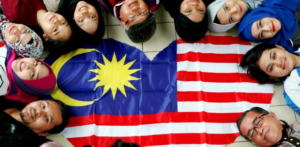The push for diversity and inclusion within academic circles is not new. Countries worldwide are grappling with this challenge, keen on molding a generation of culturally-aware, empathetic leaders. Malaysia, a melting pot of cultures and religions, faces its own set of unique obstacles in this endeavor.
The diversity landscape in Malaysia’s higher education system is reflective of its historical and socio-cultural fabric. Institutions like Widad University College, alongside others, strive to bring about a significant shift. Yet, as any transformative journey, it’s laden with challenges.

Understanding Malaysia’s Cultural Mosaic
Malaysia is home to a predominantly Malay population, with significant Chinese, Indian, and indigenous groups. This rich tapestry comes with a history of racial and religious sensitivities. Universities become microcosms of this diversity. Hence, fostering an inclusive culture requires more than just policy-level changes. It’s about nurturing mutual respect and understanding among these myriad groups.
Institutions, including Widad University College, invest in curriculum frameworks that emphasize cultural appreciation. But while curricula can be revised, changing deep-seated perceptions is a longer road.
Resistance to Change
There’s no doubt about it: change is hard. And more so when it’s about shifting age-old narratives. Older generations sometimes pass down prejudices, which then find their way into university campuses. Combating these requires concerted effort from educators, administrators, and the student community.
Programs that promote cross-cultural dialogues, exchange programs, or mentorship schemes can help bridge this gap. By weaving these into the academic structure, institutions can move beyond mere tokenism.
Language Barriers
While Bahasa Malaysia is the national language, the linguistic panorama in Malaysia is diverse. English, Mandarin, Tamil, and several indigenous languages are widely spoken. On a university campus, this could either be a barrier or an asset.
Creating an inclusive linguistic environment can sometimes be challenging. Ensuring language isn’t a hindrance to any student’s academic journey is crucial. Initiatives like multi-lingual workshops or language assistance programs can be instrumental in this regard.

The Road Ahead for Institutions like Widad University College
Institutions in Malaysia are waking up to the need for a more inclusive culture. They’re investing resources, time, and effort into making campuses spaces where every student feels seen and heard.
Widad University College, for instance, can further amplify its initiatives by engaging with student bodies, fostering mentorship programs, and conducting regular sensitivity trainings. Feedback mechanisms, where students can voice their concerns or suggestions, can also be beneficial.
Conclusion
The journey towards a diverse and inclusive university culture in Malaysia is an ongoing one. Challenges abound, but with concerted effort and genuine intent, they’re not insurmountable. Institutions like Widad University College, with their commitment to excellence and change, can pave the way for a brighter, inclusive future for all Malaysian students.

